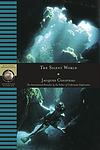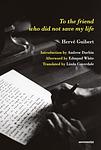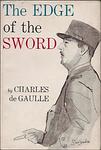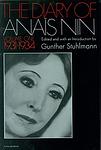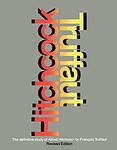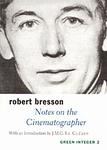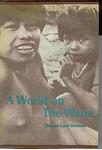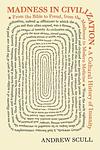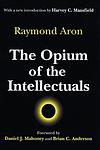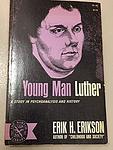The Greatest French, German "Nonfiction" Books Since 1950
Click to learn how this list is calculated.
This list represents a comprehensive and trusted collection of the greatest books. Developed through a specialized algorithm, it brings together 300 'best of' book lists to form a definitive guide to the world's most acclaimed books. For those interested in how these books are chosen, additional details can be found on the rankings page.
Genres
Countries
Date Range
Reading Statistics
Click the button below to see how many of these books you've read!
Download
If you're interested in downloading this list as a CSV file for use in a spreadsheet application, you can easily do so by clicking the button below. Please note that to ensure a manageable file size and faster download, the CSV will include details for only the first 500 books.
Download-
1. The Origins of Totalitarianism by Hannah Arendt
The book explores the roots of totalitarian systems, particularly focusing on Nazi Germany and Stalinist Russia. It delves into the historical, social, and political circumstances that led to the rise of these oppressive regimes, including anti-Semitism, imperialism, and the decline of the nation-state. The author further discusses the nature of power, the role of propaganda, and the manipulation of the masses in these systems, providing a comprehensive analysis of totalitarianism.
-
2. Mythologies by Roland Barthes
This book is a collection of essays that explore the layers of cultural and societal meanings that are imbued in everyday objects, activities, and phenomena. The author decodes the symbols and signs embedded in things as varied as wrestling, soap detergents, toys, and even the face of Greta Garbo. The book is a pioneering exploration of semiotics, the study of signs and symbols, and it challenges readers to question and understand the cultural connotations and ideologies that are presented as natural or given in our everyday lives.
-
3. Tristes Tropiques by Claude Lévi-Strauss
"Tristes Tropiques" is a blend of autobiography, travel literature, and anthropology by a renowned scholar. The book is a recounting of the author's travels and anthropological work, primarily in Brazil, in the 1930s. It provides a critical and philosophical reflection on his experiences and observations, offering insights into indigenous tribes like the Nambikwara and Tupi-Kawahib, and exploring themes of cultural change, the nature of anthropology, and the author's own disillusionment with Western civilization.
-
4. Words by Jean Paul Sartre
This book is a memoir that explores the author's early life and development as an intellectual. He reflects on his childhood experiences in a non-linear narrative, detailing his relationship with his mother and grandfather, his early education, and his evolving understanding of language and literature. The author also delves into his philosophical ideas, examining the concept of existentialism and the role of the individual in society. The book serves as a profound exploration of the power of words and the impact of childhood experiences on adult life.
-
5. Eichmann in Jerusalem: A Report on the Banality of Evil by Hannah Arendt
This book is a thought-provoking exploration of the trial of Adolf Eichmann, a major organizer of the Holocaust. The author argues that Eichmann was not a fanatical ideologue, but rather an ordinary individual who simply followed orders and bureaucratic procedures, highlighting the terrifying potential for evil in any system that values obedience over personal responsibility. The concept of the "banality of evil" is introduced, suggesting that horrific acts can be committed by ordinary people under certain conditions.
-
6. The Rings of Saturn by W. G. Sebald
"The Rings of Saturn" is a richly detailed travelogue that follows the narrator's journey along the coast of Suffolk, England. The narrative weaves together history, literature, and personal anecdotes, exploring topics as diverse as the decline of the herring industry, the horrors of colonialism in the Congo, and the life of philosopher Sir Thomas Browne. The book is characterized by its melancholic tone, its digressive style, and its meditative reflections on memory, time, and decay.
-
7. Discipline and Punish by Michel Foucault
This book delves into the historical evolution of the penal system, examining how Western societies have transitioned from a regime of violent, public physical punishment to a more subtle form of surveillance and control. It introduces the concept of the "panopticon," a metaphor for modern disciplinary societies that exercise power through observation and normalization rather than through overt physical coercion. The work explores the relationship between power, knowledge, and social control, arguing that disciplinary mechanisms are embedded in various institutions, such as schools, hospitals, and prisons, shaping individuals and maintaining order in society.
-
8. The Emigrants by Winfried Georg Sebald
"The Emigrants" is a novel that explores the experiences and memories of four different emigrants, each with a unique and complex history. The narrative primarily focuses on the psychological impact of displacement and the haunting nature of the past. The author delves deep into their lives, revealing their struggles with identity, loss, and the persistent influence of their roots. The narrative is interwoven with historical events, photographs, and other documents, creating a rich tapestry that blurs the line between fact and fiction.
-
9. Promise at Dawn by Romain Gary
"Promise at Dawn" is a semi-autobiographical novel that explores the life of a young man growing up in Eastern Europe, and later in France, under the shadow of his ambitious and eccentric mother. The protagonist's journey takes him through various phases of his life from his childhood, through his experiences as a pilot in World War II, to his adult life as a diplomat and a writer. The story is a tribute to the protagonist's mother, who instilled in him the values of courage, resilience, and the pursuit of grandeur, even in the face of adversity.
-
10. The Rebel by Albert Camus
"The Rebel" is a philosophical exploration of rebellion and revolution. It dissects the nature and origins of rebellion, arguing that it arises from a basic human refusal to accept injustice. The book delves into the many forms rebellion can take, from personal revolt to political revolution, and examines the consequences and ethics of each. The author also critically evaluates the rebellious attitudes of various historical figures and movements, highlighting the potential for rebellion to either affirm or destroy human dignity.
-
11. The Silent World by Jacques Cousteau
"The Silent World" is an autobiographical account of a pioneering oceanographer and his team's underwater explorations. The book documents their adventures and discoveries, including the development and use of the first scuba diving equipment. The author shares his experiences of exploring shipwrecks, interacting with various marine life, and the dangers they faced in the depths of the ocean. The book also emphasizes the importance of marine conservation and the need to protect our oceans.
-
12. For a New Novel by Alain Robbe-Grillet
"For a New Novel" is a collection of essays by a prominent French writer and filmmaker, where he challenges the traditional norms of narrative and character development in novels. The author argues for a new form of novel, one that focuses more on the objectivity of description and the presentation of things as they are, rather than on the psychological analysis of characters. He criticizes the conventional novel for its reliance on plot, causality, and character development, and instead proposes a novel that is more concerned with the surface of things, their materiality and their presence in space and time.
-
13. Papillon by Henri Charrière
The book is a memoir that chronicles the harrowing experiences of a Frenchman who is wrongfully convicted of murder and sentenced to life in the penal colonies of French Guiana. Determined to regain his freedom, he makes numerous escape attempts, facing incredible odds and enduring brutal conditions. His indomitable spirit and will to survive lead him through a series of adventures and misadventures, including solitary confinement, a stint in a leper colony, and living with indigenous tribes. Throughout his ordeal, his nickname, derived from the butterfly tattoo on his chest, becomes a symbol of his unyielding quest for liberty.
-
14. To The Friend Who Did Not Save My Life by Hervé Guibert
The book is a candid and harrowing autobiographical novel that chronicles the life of a man grappling with the devastating impact of AIDS during the early years of the epidemic. Through a blend of fact and fiction, the narrative delves into the protagonist's personal experiences with illness, the medical establishment, and the emotional complexities of friendship and mortality. As he confronts his own declining health, the protagonist reflects on the relationships with those around him, including a close friend who is also facing the disease, and the betrayal he feels when a promised miracle cure fails to materialize. The novel is a raw and poignant exploration of the human condition in the face of an unforgiving illness.
-
15. The Edge of the Sword by Charles De Gaulle
"The Edge of the Sword" is a compelling exploration of the art of leadership and the nature of power. The author, a prominent military and political figure, delves into the essence of politics and the requirements of leadership, emphasizing the need for strength, courage, and an unwavering commitment to one's principles. The book also provides a unique insight into the author's own leadership style and his views on France's role in the world.
-
16. The Diary of Anais Nin, 1931-1934 by Anaïs Nin
This book is a deeply personal journal of a woman's life from 1931 to 1934, providing an intimate look into her experiences, thoughts, and emotions during this period. The author explores her relationships, her struggles with her writing, and her journey of self-discovery. The diary also captures her interactions with notable personalities of the time, giving readers a unique glimpse into the cultural and social milieu of the early 20th century. Her introspective and poetic style adds a layer of depth to her observations and reflections.
-
17. I Will Bear Witness by Victor Klemperer
"I Will Bear Witness" is a chilling personal account of life in Nazi Germany from 1933-1941. The author, a Jewish professor, meticulously details the daily life under Hitler's regime, capturing the fear, oppression, and constant threat that Jews faced. The diary serves as a powerful testament to the horrors of the Holocaust and the resilience of those who endured it.
-
18. Hitchcock by Francois Truffaut
The book is a comprehensive exploration of Alfred Hitchcock's films, based on a week-long series of interviews between the iconic British director and a renowned French filmmaker. It delves into Hitchcock's cinematic style, thematic preoccupations, and technical innovations, providing insights into his creative process. The dialogue format allows readers to witness an exchange of ideas between two film industry giants, offering a deeper understanding of Hitchcock's influence on cinema and his status as the master of suspense. The book also includes numerous stills from Hitchcock's films, adding a visual dimension to the discussion and making it an invaluable resource for film students, enthusiasts, and professionals alike.
-
19. Notes On The Cinematographer by Robert Bresson
"Notes on the Cinematographer" is a collection of aphoristic insights and reflections that delve into the art and philosophy of film-making. Compiled from the personal working notebooks of a renowned filmmaker, the book offers a unique exploration of the aesthetic and technical aspects of creating cinema. It emphasizes the importance of purity and restraint in the filmmaker's craft, advocating for a style that eschews theatricality in favor of revealing the hidden truths of characters and scenes through a minimalist approach. The work serves both as a practical guide and a philosophical treatise on the medium, providing readers with a deeper understanding of the author's distinct approach to filmmaking.
-
20. Illuminations by Walter Benjamin
"Illuminations" is a collection of essays that delve into the complex interplay between society, culture, and art. The book explores the nature of artistic expression and its role in historical contexts, examining how cultural artifacts reflect and influence the conditions of their times. It discusses the concept of the "aura" of artworks, the impact of technological reproduction on art's value and meaning, and the role of the critic in interpreting cultural texts. The work also includes a seminal essay on the philosophy of history, which critiques traditional historical narratives and argues for a more nuanced understanding of the past, informed by Marxist theory and a sensitivity to the cultural and political undercurrents that shape human experience.
-
21. A World On The Wane by Claude Lévi-Strauss
The book is a reflective account of an anthropologist's journey through the Amazon Basin, documenting the lives and customs of indigenous tribes at a time when their traditional ways were increasingly threatened by the encroachment of modern civilization. Through a series of vivid observations and analyses, the author explores the complex social structures, myths, and rituals of these societies, while also contemplating the impact of Western influence on their survival. The narrative serves as both a poignant chronicle of disappearing cultures and a critique of the forces of colonialism and globalization that contribute to the erosion of human diversity and heritage.
-
22. A Comparative Study Of Total Power by Karl Wittfogel
The book in question is a scholarly examination of the concept of 'hydraulic civilization,' a term used to describe societies that manage large-scale water projects such as irrigation and flood control. The author argues that the bureaucratic structures necessary to control water resources in arid regions historically led to the centralization of power and the development of autocratic or despotic forms of government. Through comparative analysis, the work explores how the management of water resources influenced social, economic, and political structures, and how this 'total power' shaped the civilizations in question, with a particular focus on Asia. The study delves into the relationship between natural environments, technological capabilities, and the evolution of political systems.
-
23. Madness And Civilization by Michel Foucault
The book is a profound and critical exploration of the history of the treatment of the mentally ill in Western society, tracing the shifting boundaries between madness and sanity from the Middle Ages to the end of the 18th century. The author argues that the way people with mental illness were treated was a reflection of the cultural, social, and intellectual mores of the time. He examines the evolution of institutions such as asylums and the role of medical and philosophical discourse in defining and managing madness, suggesting that the treatment of the mentally ill has often been a way of exerting social control rather than a genuine effort to help those suffering. The work challenges readers to reconsider the relationship between reason, unreason, and the structures of power and knowledge.
-
24. The Opium Of The Intellectuals by Raymond Aron
The book in question is a critical examination of the prevailing political ideologies and intellectual trends of the mid-20th century, particularly focusing on the seductive nature of Marxist thought among European intellectuals. The author argues that these intellectuals often embraced Marxism not for its empirical validity but as a secular religion, an "opium" that provided a comforting sense of certainty and moral superiority. The work challenges the dogmatic adherence to ideological orthodoxy and calls for a more skeptical, empirical approach to social and political analysis, advocating for the values of liberal democracy and the importance of individual freedom over utopian visions.
-
25. Young Man Luther by Erik H. Erikson
This book is a psychological analysis of a seminal figure in religious history, focusing on his early life and the internal struggles that led to his revolutionary actions. The author, a prominent psychologist, applies psychoanalytic theory to understand the subject's tumultuous journey from a conflicted young man to a leader who would challenge the very foundations of the Church. The work delves into the protagonist's experiences with authority, his quest for spiritual certainty, and the personal crises that fueled his theological breakthroughs, ultimately shaping the course of Western civilization.
Reading Statistics
Click the button below to see how many of these books you've read!
Download
If you're interested in downloading this list as a CSV file for use in a spreadsheet application, you can easily do so by clicking the button below. Please note that to ensure a manageable file size and faster download, the CSV will include details for only the first 500 books.
Download









